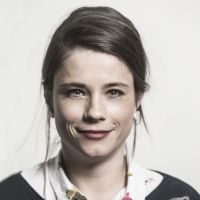is a post-doctoral researcher at the Archaeological Research Unit, University of Cyprus and the Principal Investigator of the Water Routes in Human Island Dispersals: Modeling the Pleistocene Exploitation of Cyprus (PLEICY) project.

She holds a PhD in Palaeolithic Archaeology from Royal Holloway, University of London, an MA (Distinction) in the Archaeology of Human Origins from the University of Southampton and a BA (Distinction) in History and Archaeology from Aristotle University of Thessaloniki.
She has received several awards, scholarships and fellowships, including a Marie Skłodowska-Curie Individual Fellowship for the project Raw Material Selectivity and Social Networking in Early Prehistoric Mediterranean Seascapes (grant agreement 656148, H2020-MSCA-IF-2014, 2015-2017, acronym PRENET), Arts and Humanities Research Council (AHRC), British Academy and, more recently, a DIDAKTOR-Postdoctoral grant (RESTART 2016-2020, POST-DOC 0916/0185, 2018-2020, acronym PLEICY) from the Research Promotion Foundation of Cyprus.
In 2018, Dr Moutsiou received the prestigious Young Researcher of the Year Award by the Research Promotion Foundation of Cyprus for her significant achievements in scientific excellence in the Humanities. She has participated in major international multidisciplinary projects, including, most recently, the ongoing project Delineating probable sea routes between Cyprus and its surrounding coastal areas at the start of the Holocene: A simulation approach (acronym SaRoCy).
She has been a collaborator in over ten national and international archaeological field projects covering a span of periods and regions (Europe, Mediterranean, Africa, and Australia). Her scientific interests include Pleistocene archaeology, raw material movement and selectivity, obsidian, island colonisation and human cognitive and behavioural evolution.
She combines traditional archaeological methods (excavation, survey, lithic analysis) with cutting-edge approaches (geochemistry, geospatial analysis) to address major research questions in human evolution, while taking steps in connecting with the broader community and inspiring children/young adults to engage with science.


